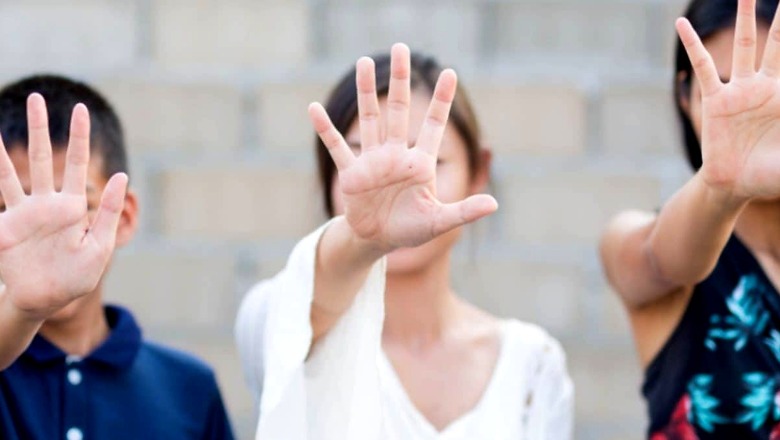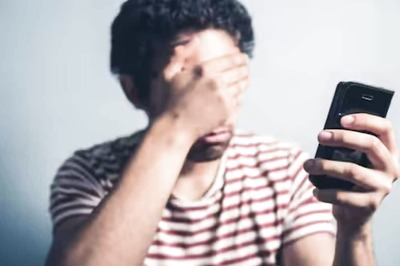
views
October marks National Domestic Violence Awareness Month, and, in collaboration with the National Domestic Violence Hotline (US), Bumble has launched a resource to spot the signs of potential red flags of abuse, to educate those who are beginning to feel as if their partner or a loved one’s partner is becoming abusive on the behaviours to look out for.
Built to prioritise healthy and equitable relationships, Bumble has partnered with Bloom, a complimentary online trauma support program for survivors, to offer resources and build a community, including one-on-one chat, on-demand courses, resources created by survivors and trauma-informed therapists—and, in some cases, six therapy sessions. Bloom’s curriculum is now also available in Hindi in India. A recent survey of those using Bloom services have reported that once referred to Bloom, 69% felt that it had or could positively impact them. All Bumble’s partnerships are aligned to app’s commitment of protecting our users’ privacy and reflect its global approach to privacy compliance.
It’s not always easy to tell at the beginning of a relationship if it will become abusive. In fact, in the early stages of a relationship, many people who are abusive seem perfect on the surface, or like a dream partner. However, possessive and controlling behaviours don’t always appear overnight but emerge and intensify as the relationship grows. That’s why it’s important to know the potential red flags of abuse. Ruchi Ruuh, Relationships Expert, Bumble shares insights on some of the key signs:
- Embarrassing or putting you downThose with self-deprecating humour might assume that others enjoy being the butt of a joke as well. However, if you advise them that you don’t enjoy it and they continue, or you notice that the jokes are never made at their own expense, this is a red flag. “Jokes” can quickly morph into belittling comments and can be used as a tool to groom someone into accepting toxic behaviours in the future.
- Preventing you or discouraging you from seeing your friends or familiesThis is a controlling behaviour known as ‘reduction’. In addition to preventing you from seeing your friends and family, it can also include removing other healthy relationships from your life little by little until the one with them is the only one that remains, leaving you feeling dependent.
- Preventing you from making your own decisions A major theme in any abusive relationship is that of control and lack of support. These instances can start small and even seem harmless, but unchecked, can beget opportunities for an abuser to take greater advantage and block bigger, life-altering decisions, varying from those focused on jobs and finances to your family and friends.
- Blaming you for the abuse, or acting like it’s not really happeningAbuse and the tendency to gaslight a victim goes hand-in-hand. When you are in a relationship, you might be blind to abusive behaviours because 1) it’s hard to accept that someone who you expect to have love and respect for you would do the opposite and 2) abusers will often make a point to keep you on their good side and convince you that what you are experiencing is normal, or, not happening at all. This is where it becomes crucial to have a trusted friend or family member as a figure of support. Make sure you’re always communicating with people in your life about your relationship – sharing the good and bad – so a third-party perspective is something you always have at your disposal.
Some other signs of abuse include:
- Looking at you or acting in ways that scare you
- Controlling who you see, where you go, or what you do
- Taking your money or refusing to give you money for expenses
- Preventing you from making your own decisions
- Telling you that you are a bad parent or threatening to harm or take away your children
- Preventing you from working or attending school
- Destroying your property or threatening to hurt or kill your pets
- Shoving, slapping, choking, or hitting you
- Attempting to stop you from pressing charges
“A healthy romantic relationship should make you feel safe and empowered. When you stop consistently identifying with those feelings it’s wise to start paying attention to the more nuanced, non-physical signs of abuse so you can seek the help you or a friend might need. In order to identify these signs, you have to know what they are and know both the obvious and not so obvious ways that toxic patterns can present themselves. I think there’s a misunderstanding that toxic behaviours are easy to spot when in reality, they might appear differently in various settings, so the more you know, the better armed you will likely be,” adds Ruuh.
At Bumble, member safety is a top priority, and we know that feeling safe is integral to making genuine connections. Bumble is dedicated to continually improving our apps so that they’re as inclusive as possible for our community, and our members can show up as their full selves.



















Comments
0 comment